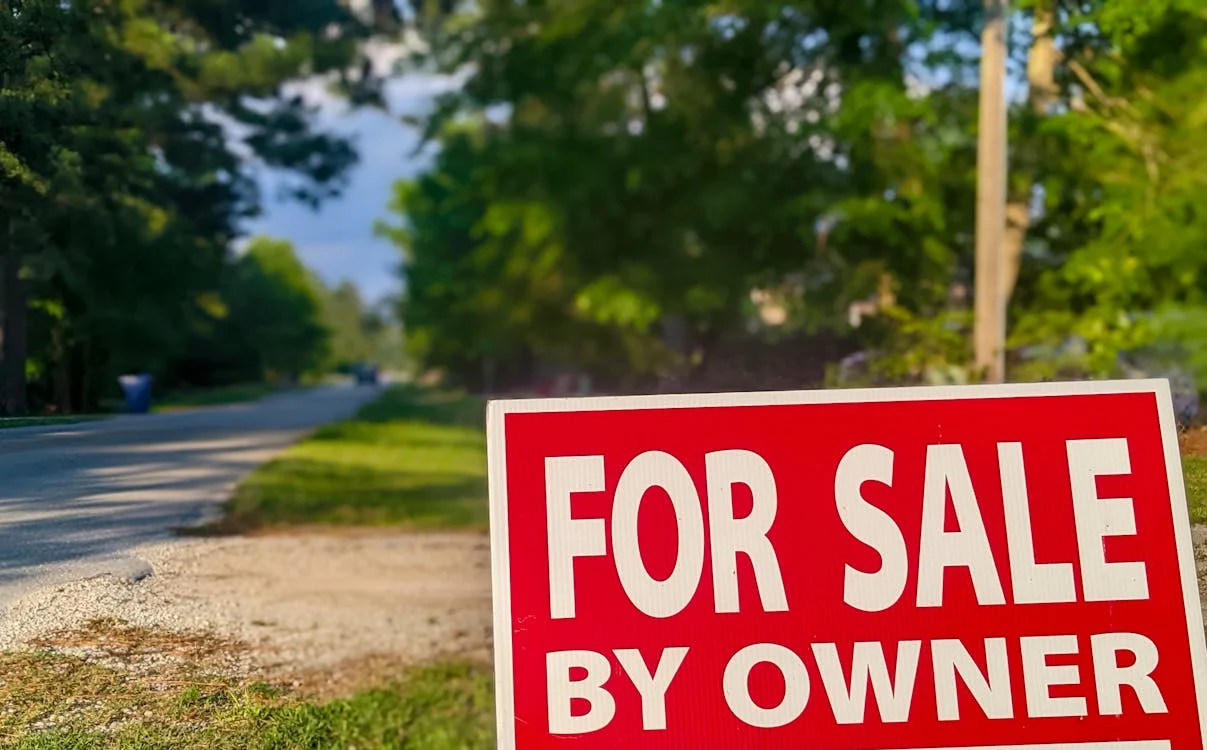Probate is a legal process that occurs after someone passes away. It involves the administration of the deceased person’s estate, including the distribution of assets and payment of debts. One common question that arises during probate is whether a house can be sold. In this article, we will provide a comprehensive guide to help you understand the probate process, the legalities involved in selling a house in probate, the steps to selling a house in probate, potential challenges that may arise, and tips for navigating a probate sale smoothly.
Understanding Probate: A Brief Overview
Before we delve into the specifics of selling a house in probate, let’s start with a brief overview of what probate actually is.
Probate is a legal process that can be complex and time-consuming. It involves the validation of a deceased person’s will and the distribution of their assets according to the law. This process is overseen by a court to ensure that everything is carried out in accordance with the deceased person’s wishes and applicable laws.
What Is Probate?
Probate is the legal process in which a court oversees the distribution of a deceased person’s assets and handles any outstanding debts. The purpose of probate is to ensure that the deceased person’s estate is properly administered and that their assets are transferred to the intended beneficiaries or heirs.
During probate, the court will also address any disputes or claims against the estate. This can include challenges to the validity of the will, disagreements among beneficiaries, or claims from creditors seeking repayment. Resolving these issues is an important part of the probate process to ensure a fair distribution of assets.
The Probate Process Explained
The probate process typically involves several steps. These may include:
- Filing the will with the court and petitioning for probate
- Appointing an executor or personal representative to oversee the administration of the estate
- Identifying and valuing the deceased person’s assets
- Paying off any outstanding debts or taxes
- Distributing the remaining assets to the beneficiaries or heirs
Each step of the probate process requires careful attention to detail and adherence to legal requirements. Executors or personal representatives must follow specific procedures to ensure that the estate is settled correctly and that all parties involved are treated fairly. Seeking the guidance of legal professionals experienced in probate matters can help navigate this intricate process smoothly.
The Legalities of Selling a House in Probate
When it comes to selling a house in probate, several legalities come into play. Let’s explore these in more detail.
Selling a house in probate can be a complex process that involves navigating through various legal requirements and considerations. It is essential to have a clear understanding of the probate laws in your specific state, as these laws can significantly impact the sale of the property. Working with a knowledgeable probate attorney can help ensure that all legal obligations are met and that the sale proceeds smoothly.
Probate Laws and Real Estate
Probate laws vary from state to state, so it’s important to understand the specific laws in your jurisdiction. In many cases, the sale of a house in probate will require court approval. The court will ensure that the sale is in the best interest of the estate and its beneficiaries. Additionally, the sale may be subject to certain statutory requirements, such as obtaining multiple appraisals or conducting a public auction.
Selling a house in probate may involve additional steps, such as notifying all interested parties, including creditors and heirs, about the impending sale. This notification process is crucial to ensure transparency and fairness in the sale of the property.
The Role of the Executor in Property Sales
The executor of the estate is responsible for managing the probate process, including the sale of any real estate. The executor must act in accordance with the deceased person’s will and the court’s instructions. They may need to obtain permission from the court to sell the house and must ensure that the sale proceeds are properly accounted for and distributed to the beneficiaries.
Additionally, the executor is tasked with handling any potential disputes that may arise during the sale process. Resolving conflicts among beneficiaries or addressing legal challenges to the sale requires a thorough understanding of probate laws and a commitment to upholding the deceased person’s wishes.

Steps to Selling a House in Probate
Now that we’ve covered the legalities, let’s look at the steps involved in selling a house in probate.
Selling a house in probate involves a series of steps that must be carefully followed to ensure a smooth and legally compliant process. From obtaining court permission to appraising the property and finally marketing and selling it, each stage requires attention to detail and adherence to specific guidelines.
Obtaining Court Permission
Before selling a house in probate, the executor must obtain permission from the court. This crucial step involves navigating through legal procedures, which may include filing a petition, providing necessary documentation, and attending a hearing. The court plays a vital role in overseeing the sale to protect the interests of the estate and its beneficiaries. It ensures that the sale is conducted fairly and in accordance with the law.
Obtaining court permission can be a complex and time-consuming process, as it requires thorough documentation and adherence to legal requirements. The executor must demonstrate that the sale of the property is necessary and in the best interests of the estate. The court’s approval provides a legal framework for the sale and protects all parties involved.
Appraising the Property
An integral part of selling a house in probate is obtaining an appraisal to determine its fair market value. The court may require the executor to seek multiple appraisals to ensure an accurate valuation. Appraisals are essential in setting the listing price of the property and attracting potential buyers who are willing to pay a fair price.
Property appraisals involve a detailed assessment of various factors, such as the property’s condition, location, and comparable sales in the area. Appraisers use their expertise to provide an unbiased valuation that reflects the true worth of the house. This valuation is crucial in determining the property’s market value and ensuring a transparent sales process.
Marketing and Selling the Property
Once the necessary permissions and appraisals are obtained, the focus shifts to marketing and selling the house. This stage requires strategic planning and effective communication to reach potential buyers and secure a successful sale. Hiring a real estate agent with experience in probate sales can streamline the process and maximize the property’s exposure in the market.
Real estate agents specializing in probate sales understand the unique challenges and requirements of selling inherited properties. They can develop a tailored marketing strategy, list the property on relevant platforms, and engage with potential buyers to negotiate favorable terms. Presentation is key during this phase, as the property must be showcased in its best light to attract interested parties and facilitate a smooth transaction.
Potential Challenges When Selling a House in Probate
Selling a house in probate can present various challenges. Let’s explore a few common issues that may arise.
When dealing with a property in probate, it’s crucial to understand the legal implications and complexities involved. Probate laws vary by state, and navigating through the legal requirements can be daunting for the executor. Seeking guidance from a probate attorney can help ensure compliance with all legal procedures and requirements, minimizing the risk of potential legal challenges down the road.
Dealing with Heirs and Beneficiaries
Disputes among heirs or beneficiaries can delay the sale process. It’s essential for the executor to communicate effectively with all parties involved and work towards resolving any conflicts amicably. In some cases, the court may need to intervene to address disagreements or distribute the proceeds equitably.
Emotions can run high when family members are involved in the probate process. Personal attachments to the property or disagreements over its value can complicate matters. Sensitivity and clear communication are key in managing these relationships and ensuring a smooth sale process.
Handling Debts and Taxes
Paying off outstanding debts, including mortgages and property taxes, is essential before selling the house. The executor must ensure that all debts are settled to avoid complications during the sale process. Additionally, the sale may be subject to taxes, such as capital gains tax. Seeking professional advice from an attorney or tax expert can be helpful in navigating these financial considerations.
Uncovering hidden debts or tax obligations associated with the property can further complicate the probate process. Conducting a thorough financial review and working with financial advisors can help identify and address any outstanding financial issues, ensuring a clean transfer of ownership during the sale.
Tips for Smoothly Navigating a Probate Sale
Here are a few tips to help you navigate the probate sale process smoothly:
Working with a Probate Real Estate Agent
Enlisting the services of a probate real estate agent who specializes in probate sales can simplify the process. They have the necessary expertise to handle the legalities, market the property effectively, and negotiate on your behalf. Look for an agent with a proven track record in probate sales and positive client reviews.
Probate real estate agents not only understand the complexities of the probate process but also have a network of professionals, including attorneys and appraisers, to assist in the sale. Their knowledge of local market trends and pricing strategies can help you make informed decisions when selling a property through probate. Additionally, these agents can provide valuable guidance on how to navigate any challenges that may arise during the sale.
Preparing the House for Sale
Investing time and effort in preparing the house for sale can significantly impact its appeal to potential buyers. Consider staging the property, making necessary repairs, and improving curb appeal. Presenting the house in the best possible light can help attract buyers and potentially increase the sale price.
Enhancing the property’s online presence through high-quality photographs and detailed descriptions can generate more interest from prospective buyers. Utilizing virtual tours or video walkthroughs can also provide a comprehensive view of the property, especially for out-of-town buyers or those unable to visit in person. Engaging with potential buyers through virtual open houses or one-on-one video calls can create a more personalized experience and showcase the property’s unique features.
Conclusion
While a house in probate can be sold, it requires navigating through various legalities, obtaining court permission, and following the probate process diligently. Working closely with an experienced probate real estate agent and seeking professional advice from attorneys or tax experts can ensure a smoother and more successful probate sale.






